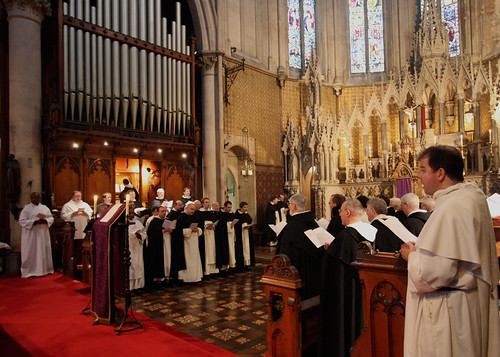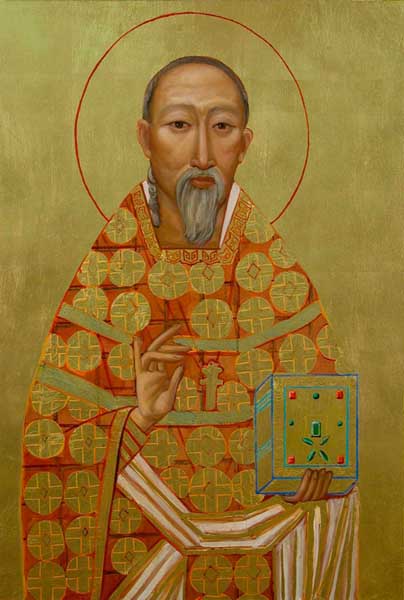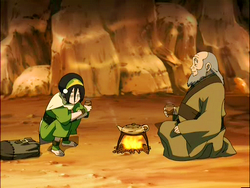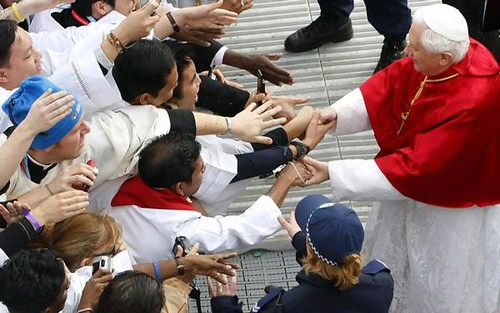‘Huh? Heart knowledge? That doesn’t exist
right? Lolz’
‘I don’t know how to define that… is that
where you get all the virtues like compassion, and charity?’
‘It’s the subjective experience right?
Emotions and opinions that we have on God?’
Scarily enough, these are some of the
answers that I got when I asked youth to define the term, ‘heart knowledge’.
Head knowledge and heart knowledge are
favourite terms of catechists and adults in charge of formation and the like. I
always hear them getting thrown around. You know, ‘David, you have too much
head knowledge. You need to learn more heart knowledge!’? Well, actually, no, I
don’t know. These terms have actually caused me much angst for a very long time
now, because, 1) they are extremely vague and ambiguous terms, so I have spent
quite some time trying to figure what they mean, and 2) growing up as an
impulsive nerdy teenager, I obviously read a lot and acquired a lot of ‘head
knowledge’.
As a confused youth, I went through several
phases where I was confused about the terms and just nodded to trying
unsuccessfully to ditch ‘head knowledge’, to trying unsuccessfully to ditch
‘heart knowledge’ in a reactionary manner, to finally finding peace after
dropping the concept totally for one with clearer and well defined terms. It
should be interesting to note that, as someone who has read books and extracts
of Catholic teaching fairly decently across the history of the Holy Mother
Church’s two thousand history, such terms where never employed until the last
fifty years, and then, mostly in evangelical protestant circles. They’re
essentially new age fluff as my theologian/teacher mentor calls it.
 |
| It tastes good, it sound good, but no one is sure about what it is. |
Ambiguity
The ambiguity of terms is a great cause for
concern and as a pseudophilosopher and student of science, I do not like
ambiguous terms at all. While, head knowledge is easy enough to define, and is 'limited' to the theoretical knowledge or reason that one attains through reading
and so on, often these are concrete concepts like ‘Jesus Christ was crucified
for our sins.’, however, ‘heart knowledge’ is much more difficult to define. It
is anything from between, ‘practical experience’ to ‘feelings and emotions’ to ‘subjective
opinions’, but exclude what is head knowledge (after all, they cannot be the
same in order for a distinction to occur).
Now, each of these three things are very
different and shouldn’t lie under the same umbrella. ‘Subjective opinion’ is
something not unique to ‘heart knowledge’ since it will exist in the realm of
theory as well, thus the terms will overlap, and remain ambiguous.
Next, ‘feelings and emotions’ are not a
good foundation for the faith at all; the church fathers warn that emotions are
fickle and easily manipulated. For example, when we are in the presence of the
Blessed Sacrament, we should not expect to feel anything at all, because the
transubstantiation happens at a level beyond our sensory ability to perceive.
What we look at, smells, tastes, looks and feels exactly like ordinary bread
and wine. Yes, we often feel a supernatural sense of peace in His presence
under the veil of a sacrament, but what happens if all that is taken away, and
we presented with the consecrated host that looks, tastes, feels and smells
like ordinary bread? Well, our mind intellectually reminds us that piece of
bread before is really the body, blood, soul and divinity of Christ hiding
under the appearance of bread. I can imagine several possibilities where one
will not feel this feeling at Mass, for example being in a state of anger or in
a state of distraction. Thus, if one’s foundation of faith is based on
feelings, it will surely fall like the house built on sand. (This is not to say
that there are not emotions involved in our spiritual life. That supernatural
sense of peace that signifies God’s presence is mystical experience, and a
great consolation, but should not be the bar for our faith. Neither does it not
mean that there is only one way to know things, only that not all ways of
knowing things are equal.)
Finally, we are left with ‘practical
experience’, which is only one that provides somewhat of a clear distinction
between knowledge from the Heart and from the Head. However, even here there lies
ambiguity. For example, say, I was meditating on a piece of scripture and was
then granted an epiphany of said passage by God, and felt his supernatural
peace as reassurance, now would that be head knowledge or heart knowledge? It
was certainly a theoretical and reasoned gain of knowledge yet, it was also a
practical experience. Furthermore, the seat of knowledge is the head in western
philosophy and the heart is the seat of emotion. It is from the west that we as
Catholics derive our philosophy. Thus, that is how society has come to view
these terms. No one says, ‘my head is filled with sorrow’ or ‘I have grasped
the theory of relativity in my heart.’ That certainly sounds odd.
Anti-intellectualism
To add to the problem, when heart knowledge
is used in juxtaposition to head knowledge, it is usually taken to mean all
three aforementioned definitions at once, with the further presumption that
intellect is limited to head knowledge. Yet, knowledge is function of the
intellect, in fact, to know something is also act of the intellect (and yes,
there is a difference between knowing and knowledge, whereby the former is a
spiritual/emotional perception of information and the latter an ownership of
information). Thus, I can know Christ in
my heart, but in order to do that, I must have knowledge of Him in my head.
However, this article is not meant to deal
with that epistemology, and I trying to make this as readable as possible, so
we’ll get back onto the real point, the separation and limitation of the
intellect to the ‘head knowledge’. Often, when these terms are used, they are
done so, while probably unwittingly, in an antagonistic fashion. At catechism
classes and retreats, I so often hear the teacher or retreat master say after a
very short and simple lecture, ‘Okay, I think that’s enough head knowledge,
let’s do activity X to use our heart to learn instead.’ or during planning
sessions, ‘that’s too much head knowledge, we don’t want to go too much in
depth, it will fly over their heads.’ Unfortunately, an unintended consequence
of keeping lessons ‘practical’ in such a manner is that the kids then go
through life with the idea and complacency that I don’t actually need to learn
about God, I’m just fine the way I am. Jason T. Adams, a high school theology
teacher, sums it up rather neatly, with my
emphasis:
In the religion
classes at Catholic schools, the academic breakdown and failing interest of the
students is caused by two factors. First, students have been conditioned to
think that faith and reason are opposed. Catechists have coined an expression
that reveals this: "When it comes to faith, I want to teach my students
heart knowledge instead of head knowledge." Contrary to this trite
philosophy, "head knowledge" (a grasp of the tenets of faith), and
"heart knowledge" (the application of understanding to concrete
practices) are not mutually exclusive; rather, they are mutually beneficial and
inextricably related.
The result of this false dichotomy is an attitude in
the students that religion is about feelings, not substance. Because their orientation is non-intellectual from the onset, they
are ill equipped to handle concepts that stretch their minds or call for mental
discipline. The content of faith becomes so subjective to the students that they
believe there are no such things as right or wrong answers to questions of
faith.
You can read the rest here.
Again, that is not to say that these teachers do it on purpose. I firmly
believe it is well intentioned and done as a means of maintaining interest or
not to ‘scare’ the kids off. Moreover, these terms and the conventional way
that they are used appear to my mind to be remnants of the great
anti-intellectual movement of the 1960s. Yes, yes, intellectualism and the
intellect are different things, but it is this general
I-don’t-want-to-use-my-brain attitude that has prevailed and created the
Generation Y and now Generation Z eras of mental laziness and apathy. I had a
dear young friend cheekily remark to me the other day, ‘don’t you ever get
bored talking about intelligent things? Talk about meaningless things, it’s
more fun.’ Personally, I feel this particular attitude is annoying thorn left
in society side, amongst other things, from the hippie revolution in the ‘60s.
 |
| Hippism. Bringing the world back to the stone age since 1969. |
Another problem is that catechists don’t
give their teenage students enough credit. In school, by the age of fourteen,
they are learning abstract concepts like trigonometry or photosynthesis. These
things seem rather easy to understand, however try to recall when you were
fourteen trying to grasp the idea that light could be used to split water into
hydrogen ions and oxygen ions and the H+ ions were then used to
power the enzyme that made energy in the body. It probably took you a while,
but you learnt it nevertheless and passed your examination.
Theology is no different, it has terms
which seem foreign when first discovered, but the definitions are memorised and
churned about in the head until an understanding is formed. For example, the
idea of Transubstantiation. It essentially means that the substance or essence
of the bread and wine, that is their ‘breadness’ and ‘wineness’, the things
that make bread and wine, bread and wine, are changed into the substance of
Christ, while the accidentals, the smell, shape, colour, texture, etc caused by
this ‘breadness’ and ‘wineness’ remains. This is certainly not beyond the
average teenager to comprehend, though it will take a bit of time to reflect
upon.
However, all this is not to say that one
should throw the Summa Theologica at young rebellious teenagers. There are of
course different levels of understanding, and the appropriate level should be
taught, however the point is that what is taught should not be watered down and
diluted like a homeopathic therapy.
Devotion
and Theological Thinking
A possible solution to the ambiguity of
head and heart knowledge is simple to drop the terms altogether for something
which is completely concrete and understandable at an instant.
Consider the third definition of head and
heart knowledge, which is the only useable one, that of theoretical and
practical application or experience of theology. Theology, very simply put,
asks the question of if God exists, and He could talk to us, what would He say?
In Christianity, God talked to us, He gave us the Word, and the Word was made
flesh and dwelt among us. So, what did this loving word say? In summary, God
loves you so much that he sent His only Son to die for your sins, now love Him
back with all your being and love your neighbour as yourself.
So how is this translated into theoretical
and practical knowledge? Theoretically, one has to have the knowledge that God
loves you; practically, one has to love God. Thus, to get the knowledge, one
must first learn it and reflect on it, this we call ‘Theological Thinking’.
This knowledge is then put into practice in an act of love towards God, simply
put, a ‘devotion.’
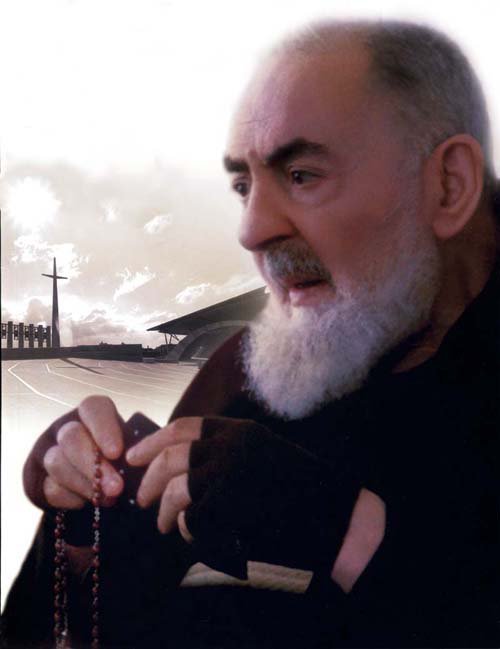 |
The Rosary, both a devotion and contemplation.
Archbishop Fulton Sheen calls it 19 minutes of perfect prayer. |
Recently, after a talk, my priest reminded
us that most people nowadays perform a great deal of devotion but they leave
out theological thinking. He said that the two of them go hand in hand and they
cannot be separated from each other and that absolutely everyone is capable of
some form of theological thinking.
This is certainly true, while not everyone
will reach the same depth of thought, it is more than possible to meditate or
contemplate on the word of God. That is why a church is usually filled with
statues, paintings and stained glass windows that depict saints and various
stories from their lives or from the bible. Together with the priest’s homily
every Sunday, the simple illiterate folk from olden times probably had a much
greater appreciation of theology than we do despite being unable to read.
Intellect
These acts of devotion and theological
thinking are in fact acts of the
intellect. Thus, in an ironic strict sense, ‘heart knowledge’ is ‘head
knowledge’. While knowing God can come through various means, the act of
devotion and theological thinking are both acts of intellect, because one must
will oneself to perform the action. Since they both stem from the intellect,
one cannot separate the practical from the theoretical, so to speak, and one
requires both of them together to nourish the intellect and gain a greater
knowledge of God. True to the both/and mentality of Catholicism, neglecting one
of these acts will result in a stumping of spiritual growth.
This is one of the reasons that the
Pentecostal Renewal movements that spring up megachurches have such high
attrition rates, they are all devotion without any real foundation. The same
can be said for the movements within the church which are influenced by it and
similar groups. ‘Head knowledge’ gives ‘heart knowledge’ its foundation.
However, with ‘head knowledge’ being
eschewed for ‘heart knowledge’ for the last fifty years, most will be found
wanting for even the most basic foundations of the faith to begin some
meditation. Which begs the question, over the last year, how many books on the
faith has one actually read? They don’t strictly have to be theology, but even
books about the lives of saints and spirituality, because if they are good
books, they will spring out from theology. Or even articles online, which are
very easy to find.
Yes, my friends, this very long article was
to inspire you to go pick up a nice good Catholic book. But seriously, the
words we use are important because of the concepts that they hold. You'll be doing what the Holy Father, and all his predecessors have been telling us, LEARN about the faith.







